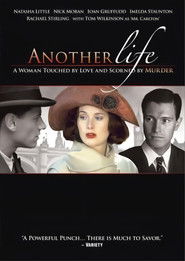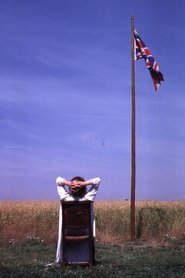detail profile richard mayes
Peran Yang Di Mainkan Richard Mayes
 A woman is wrongly accused of...
A woman is wrongly accused of...Another Life 2001
A woman is wrongly accused of murdering her husband in Edwardian London. Just before the outbreak of World War I, Edith Graydon married her boyfriend Percy Thomson. He survives the war but theirs is not a happy marriage. She doesn't really love him and he feels it every day. He's also possessive and their daily life is a constant battle. She meets and falls in love with Frederick Bywaters, her sister's one-time boyfriend. They have a long affair and her desperate attempts to get either a formal separation of divorce from her husband falls on deaf ears. They are at their wits end and Bywaters decides to do something about it. On a dark evening when Edith is walking with her husband, Bywaters stabs him to death. Edith is charged with murder along with Bywaters and both are found guilty. She claims her innocence right up until the day they are both executed by hanging in 1923. Based on a true story.
 Simon Willertons suicide in 1990 brought to...
Simon Willertons suicide in 1990 brought to...Criminal 1994
Simon Willerton's suicide in 1990 brought to six the number of young prisoners who hanged themselves in British prisons in just over six months, prompting public debate over conditions in remand prisons like Armley where overcrowding was so severe that no new inmates could be admitted. Simon faced a burglary charge over the theft of a hot-water bottle from an unoccupied flat. Less a hardened criminal than an immature, gawky teenager who never fitted in, Simon and his tragic death inspired this teleplay.
 Popular and dashing American singer Nick...
Popular and dashing American singer Nick...Top Secret! 1984
Popular and dashing American singer Nick Rivers travels to East Germany to perform in a music festival. When he loses his heart to the gorgeous Hillary Flammond, he finds himself caught up in an underground resistance movement. Rivers joins forces with Agent Cedric and Flammond to attempt the rescue of her father, Dr. Paul, from the Germans, who have captured the scientist in hopes of coercing him into building a new naval mine.
 In the early years of the 20...
In the early years of the 20...Gandhi 1982
In the early years of the 20th century, Mohandas K. Gandhi, a British-trained lawyer, forsakes all worldly possessions to take up the cause of Indian independence. Faced with armed resistance from the British government, Gandhi adopts a policy of 'passive resistance', endeavouring to win freedom for his people without resorting to bloodshed.

 A British short film
A British short film